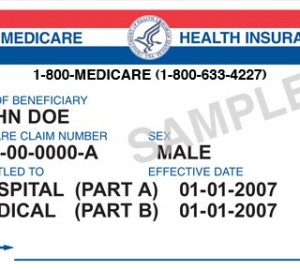PENNSYLVANIA

Post Acute Medical, LLC, a Pennsylvania-based operator of long‑term care and rehabilitation hospitals across the country, will pay more than $13 million to settle allegations of kickbacks and improper physician relationships, officials announced Wednesday.
The whistleblower will get more than $2.3 million as part of the settlement.
Post Acute and certain affiliated entities through which the company operates its facilities, operating as PAM, have agreed to pay the United States, Texas, and Louisiana a total of $13,1 million to resolve claims.
The company violated the False Claims Act, and the Texas and Louisiana false claims statutes, by knowingly submitting claims to the Medicare and Medicaid programs that resulted from violations of the Anti‑Kickback Statute and the Physician Self‑Referral Law, the Justice Department announced.
The settlement resolves allegations originally brought by Douglas Johnson in a lawsuit filed under the whistleblower provisions of the False Claims Act, which allow private parties to bring suit on behalf of the federal government and to share in any recovery.
The whistleblower will receive $2.3 million as his share of the federal government’s recovery in this case.
The Anti-Kickback Statute, in relevant part, prohibits offering or paying anything of value to encourage the referral or to encourage recommending or arranging for the referral, of items or services covered by Medicare, Medicaid, and other federally funded programs.
The Physician Self‑Referral Law, commonly known as the Stark Law, prohibits a hospital from billing Medicare for certain services referred by physicians with whom the hospital has an improper financial relationship.
Both the Anti-Kickback Statute and the Stark Law are intended to ensure that medical decision-making is not compromised by improper financial incentives and is instead based on the best interests of the patient.
Since it was founded in 2006, Post Acute entered into numerous physician-services contracts on behalf of its hospitals.
In a statement on its website, Post Acute Medical stated the following, in part:
‘Although Post Acute disputes that there were any substantive defects with respect to those relationships from a compliance and documentation perspective, many of which commenced long before Post Acute acquired the facilities, in the interest of moving forward and avoiding continued expense, Post Acute agreed to an amicable resolution with the government which it did not acknowledge any violations of applicable rules.’
Although the purpose of these contracts was ostensibly to retain physicians as medical directors or in other administrative or medical roles, the United States alleged that in reality the company’s payments under these contracts were intended to induce the physicians to refer patients to Post Acute’s facilities.
The company allegedly violated the AKS further by entering into what it called “reciprocal referral relationships” with unaffiliated healthcare providers such as home health companies.
In the course of those arrangements, PAM allegedly referred patients to those other providers with the understanding that those providers would refer other patients to PAM’s facilities.
“Kickbacks undermine the independence of physician and patient decision-making, and raise healthcare costs,” said Acting Assistant Attorney General Chad A. Readler, head of the Justice Department’s Civil Division. “The Department of Justice is committed to preventing illegal financial relationships that undermine the integrity of our public health programs.”
“Medicare and Medicaid beneficiaries depend on their health care providers to make decisions based on sound medical judgment,” said U.S. Attorney David J. Freed.
“PAM’s alleged kickbacks and improper physician relationships threatened the impartiality of medical decision-making and the financial integrity of Medicare and Medicaid,” said Special Agent in Charge C.J. Porter for the U.S. Department of Health and Human Services Office of Inspector General.
PAM’s conduct allegedly resulted in false claims to Medicare as well as certain Medicaid programs.
The latter are jointly funded by both the federal and state governments. Under the settlement, PAM will pay $13,031,502 to the United States, $114,016 to Texas, and $22,482 to Louisiana.
In addition, PAM has entered into a five-year Corporate Integrity Agreement with the Department of Health and Human Services Office of Inspector General which includes, among other compliance obligations, an arrangements review to be conducted by an Independent Review Organization.

